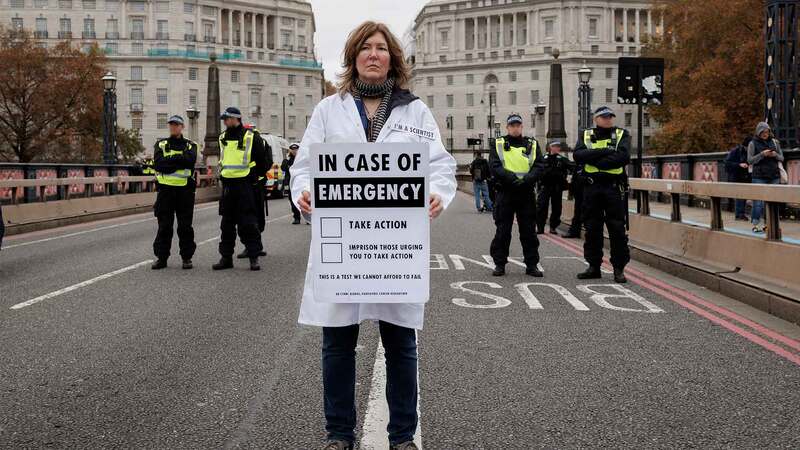You are viewing your 1 free article this month. Login to read more articles.
Lionel Shriver: A rotten bond
Few novels leave you gasping at the final paragraph as if the breath had been knocked from your body. Yet such is the impact of We Need To Talk About Kevin (Serpent's Tail, 1st March 2005, tpb, £9.99, 1852428899) by American writer Lionel Shriver. It is a provocative, hard-hitting book that carries an extremely powerful charge, but which is certain to polarise its readers, many of whom will be infuriated, even offended, by the story.
We Need To Talk About Kevin is the author's seventh novel, and her first to achieve significant sales success in America, where a word-of-mouth surge has now reached 30,000 copies. The book was previously only distributed in the UK, so despite having already attracted some media interest (a Guardian profile by Rachel Cusk, and an interview from broadcaster Jenni Murray on BBC Radio 4's "Woman's Hour"), the Serpent's Tail edition will effectively be the book's first publication in the UK.
Shriver's novel subjects a sensitive topic to fierce and tough-minded scrutiny. The story is told in a series of letters by Eva Khatchadourian, a successful travel guide publisher ambivalent about motherhood, who has been persuaded by her broody husband to have a child.
As the novel opens, Eva's baby, Kevin, has grown into an adolescent who has committed a Columbine-style school shooting; Eva is now visiting her unrepentant, indeed triumphant, son as he glories in his new-found celebrity in prison.
In letters written to her absent husband, Eva scrutinises her troubled experience of motherhood, including her frank dislike of her child from his earliest years and the long, intense, hostile tussle that developed between them as she strove to care for him in the way she felt she should.
The question posed by Eva--and by the book, which suggests that Eva's own interpretation cannot entirely be trusted--is on which side the trouble originates. Is Kevin intrinsically malevolent, as Eva believes, or has her flawed mothering itself created a monster?
Shriver (christened Margaret Ann, she chose as a teenager to rename herself the more masculine "Lionel") moved to England in the late 1980s. She now divides her time between London, where she lives with her husband in a quiet square in Borough, SE1, and New York, where she writes and reviews for the US press.
Shriver says that she wrote the book to explore her own negative feelings towards motherhood--she has chosen not to have a child. "There are downsides to both sexes, and the downside to being female is pretty obvious. We haven't run the world. It's hard not to have some misgivings about the whole process of pregnancy and motherhood; it's a tremendous imposition."
But Shriver insists, with a laugh, that she is no more certain than the reader of who is "to blame" in the events of her novel. "No, I don't know! Because what I ended up getting into is the mind of a person who is struggling with her own life, as we all are, and the truth is that that kind of verdict is exactly what you never get in your own life.
"You've only got your own subjective experience to go on--and you never have all the information, you don't know what went on behind your back, and you can't know what makes people tick and what influence you have on the sequence of events."
Parenting orthodoxy may stress the all-important role of maternal love. "But what I find ironic about that is that meanwhile science is working completely the opposite way. If anything, it is identifying character traits down to even basic criminality as having genetic corollaries. Clearly both nature and nurture have an effect."
Everyone who reads the book, she says, brings their own experiences to the table--and people interpret the relationship between Kevin and his mother in starkly different ways. "I had a very interesting down-the-line book club experience: two sisters I'd been chatting to for a while told me that they had had two brothers, both of whom had committted suicide. One of them they really missed and were very sad about; about the other one, their view was 'Good riddance.'
"They were perfectly content to volunteer this fact. They clearly wished he had died earlier than he did. They said, 'Oh, Robert was evil. He was evil from the very beginning, did nothing but torment us as children, and we're glad he's dead.' They read this book with a sense of recognition that they grew up with this boy."
Other readers detest the character of Eva. "She tests the reader, partly because she's testing herself, and looking at some of her least attractive qualities," Shriver offers. "It was a challenge to write some of the scenes so that she didn't seem a complete monster. But I have had a lot of response to the issue of disliking one's child--it's apparently not that rare.
"I think when parenting goes wrong, it's devastating, traumatic. Because we romanticise the relationship, people in that situation feel that nobody understands them, they're just going to be blamed. But your heart has been broken by the failure of the relationship."
Indeed, as Kevin and Eva engage in their life-or-death psychological battle, a battle that continues to the novel's final page, perhaps what comes across most strongly is the sheer power of the parent-child bond--for better or for worse.
"We all have some experience of this with our relatives," Shriver points out. "You might not pick any of them from a line-up as your best friend, but there's a feeling of being bound up with them, whether you like it or not; being in a relationship with them that you cannot make unimportant. You can make it rotten. You can refuse to see each other. But even the act of not seeing each other is hugely important.
"I went through a couple of years of not speaking to my younger brother--and every day I was 'not speaking to him', and he to me. It was active. We had too much to do with each other, it was impossible for either of us to turn our back and say, 'This doesn't matter.'"









